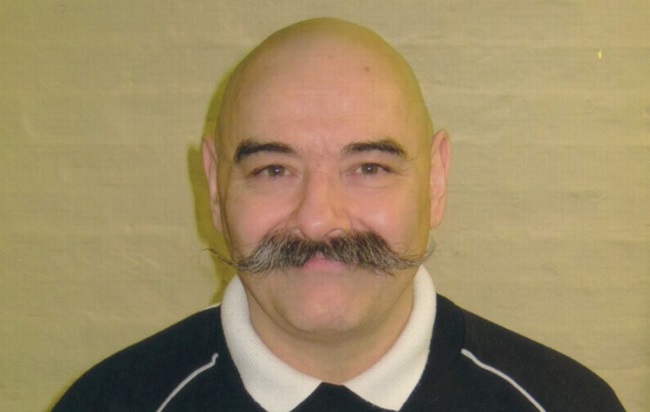Actually, Charles Bronson’s homeland was Lithuania. His Lithuanian mother gave birth to him after marrying a fugitive father. In total, there were 14 siblings, and one of them was Charles Bronson. Of all of them, Charles Bronson came first.
This adjustment inside a multilingual home allowed him to become fluent in both Lithuanian and Russian. His father’s death prompted him to begin working in a coal mine. Each tonne of coal he extracts earns him $1 at the coal mine.
For this reason, his pay scaled with the frequency with which he uncovered new methods. His military credentials were evaluated during WWII. It was in 1943 that he enlisted in the United States Air Force.
In recognition of the many scars he proudly carries, he was awarded a Purple Heart. In 1950, he had made it to Hollywood, and it was then that he enrolled in an acting programme.

In the star-studded history of Hollywood, many actors have tales as captivating as the roles they portray. Charles Bronson, the rugged face recognized across decades of cinema, has an intriguing story behind his name that is entwined with the iconic Paramount Studios.
Dive in to unravel the tale of how Charles Bronson got his name, his association with Paramount, and more.
Read Also:
- Who is John MCKay JR Married To
- How Old Was Tom Cruise in Top Gun
- Incredible Warriors Big Three Playoff Stat being Tested in Nuggets
Charles Bronson Makes His Entrance.
The first image, “Now you are in the Navy,” featured Charles Bronson’s introduction. He was sporting a seafarer look in the photo. In addition, he had cameo appearances in films like Mike & Pat, House of Wax, etc. In 1952, he participated with Knockout.
As early as 1953, he made an appearance on The Red Skelton Show. After that, he started appearing on shows like Captain Jack and Drum Beat, where his talent was showcased to the world. In 1954, Charles Buchinsky formally changed his surname to Bronson.
To avoid potential legal issues associated with his European last name, he decided to adopt a new identity. He became well-known after demonstrating his skill with the Colt.45. After being the focus of 1960’s “Man with a Camera,” he was immortalised in the phrase.
Due to his inherent abilities, he eventually gained a sizable following. This earned him the moniker “Hollywood’s Next Big Thing.” As an integral member of the Hollywood series, he also received financial perks.
A Look Back at Charles Bronson’s Most Prominent Accomplishments
Charles Bronson became a recognised face in Hollywood, and the media took notice. He played a rough-and-tumble rival in “The Dirty Dozen” television series. By performing, he gained more robust experience, and this experience propelled him to the pinnacle of success.
He also appeared in “Rider on Rain,” one of the most popular series ever. These shorts helped Charles Bronson gain recognition and financial success, propelling him to the forefront of the cinema industry.
The Paramount Name Game
One of the most interesting snippets from Hollywood’s lore is how Charles Bronson, originally named Charles Dennis Buchinsky, adopted his screen name. The story goes that he took his name from “Bronson Street,” which leads up to the gates of Paramount Studios in Hollywood.
This wasn’t just a whimsical decision. During the McCarthy era, to avoid being blacklisted due to the Eastern European ring to his original surname, Buchinsky opted for the more American-sounding ‘Bronson.’
Paramount Studios: A Brief Glimpse
Before delving further into Bronson’s life, it’s crucial to understand the magnitude of Paramount Studios in the world of cinema. Founded in 1912 by Adolph Zukor, Paramount Pictures is America’s second oldest running movie studio.
The first movie ever produced under the Paramount banner was Queen Elizabeth in 1912. Over the decades, the studio has given cinephiles countless classics, holding an essential place in Hollywood’s legacy.
Today, Paramount is owned by the multinational conglomerate, ViacomCBS. Its vast repertoire includes blockbuster franchises like Transformers, Star Trek, and Mission: Impossible.
Charles Bronson: More than Just a Name
While his name’s origin story is fascinating, Charles Bronson’s career is equally, if not more, captivating. Though often confused with the British prisoner turned actor, Michael Peterson, who adopted the pseudonym “Charles Bronson,” our Bronson is a distinct entity in Hollywood.
Renowned for his roles in movies such as Death Wish, Once Upon a Time in the West, and The Great Escape, Bronson was often cast as the tough, silent type.
His rugged demeanor and undeniable on-screen charisma made him a favorite in action films and westerns. Through his roles, he depicted characters that were often hardened by life but maintained a sense of justice and morality.
Read Also:
- Ralph Macchio Net Worth
- Christopher And Stephanie Go Big Show Why Did They Leave
- Who is The Only Person To Win An Oscar For Acting in a Quentin Tarantino Film?
Last Words
To begin with, Charles Bronson was an unknown figure. After that, he realised it was time to start showcasing his skills as an actor. Charles Bronson starred in a few episodes and gradually became a household name.
He developed both personally and professionally into a powerful individual. People began to warm up to him, and he eventually became an integral element of Hollywood productions. Charles Bronson’s perseverance, strength, and resolve made all this possible.
While the story behind Charles Bronson’s name offers a curious insight into Hollywood’s history, it’s but a small chapter in the actor’s illustrious career. From his early days to his iconic roles, Bronson’s contribution to cinema remains unparalleled.
His connection to Paramount Studios, via his chosen name, forever intertwines his legacy with one of Hollywood’s most storied production houses.
For fans and budding actors alike, Charles Bronson’s journey serves as a testament to adaptability, persistence, and raw talent in the ever-evolving world of cinema.















